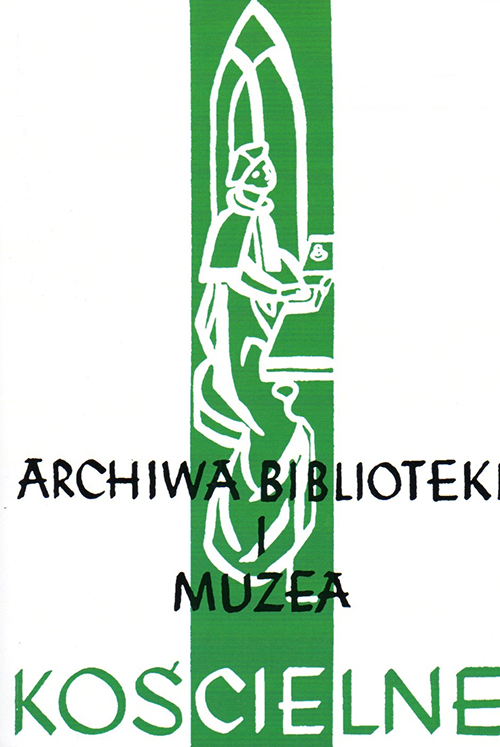Rodzaje i formy jałmużny w Polsce przedrozbiorowej
Types and forms of handouts in pre-partition Poland
Author(s): Marian SurdackiSubject(s): Christian Theology and Religion, Social history
Published by: Katolicki Uniwersytet Lubelski Jana Pawła II - Wydział Teologii
Keywords: handout; brotherhoods; the poor; beggars; legacy; will
Summary/Abstract: The problem of the sick, poor, old, orphans and those who are in need continuously appeared throughout human civilization. The Church played a huge, even dominant role in providing assistance to these people, as its doctrine of mercy inspired his followers to support the needy. This aid was rendered primarily through hospitals - which until the Enlightenment functioned as poorhouses; to a lesser extent by brotherhoods of charity. However, the most common form of assistance was a handout called "daily mercy"; according to the medieval concept of mercy, a "gold" and universal remedy for all human misery, because available for all the people from different classes and social groups. Giving handouts was something natural and done every day, something inherent in the mentality of medieval and modern society. It was an important part of all church and family ceremonies, public meetings, gatherings, and travel.There were different forms of giving handouts. One of them was a handout from individuals, which was usually practiced in the form of so-called testamentary handouts bequeathed in wills. Bequests and dispositions concerning handouts were made both to individuals (beggars and the poor) and a group of people living on the streets or in their homes. Also, the authors of their wills often bequeathed part of their wealth to charitable institutions, primarily hospitals and residents living in them.Informal handouts were rendered even more often; they were given by individuals in a spontaneous manner either to people who were in hospitals, or beggars who were not connected with any charitable institutions.Another form of supporting the needy was a funeral handout, distributed by the family of the deceased to beggars participating in the funeral. Sometimes it resulted from the will of the deceased, who before his death obligated relatives (in his will or by his words) to bestow handouts on the poor present in the burial ceremony. Beggars also received support participating at the funeral reception.The above-mentioned types of handouts can be defined as non-institutional ones. Sometimes, however, handouts were given by various institutions and organizations such as parishes, monasteries, hospitals and charitable brotherhoods, which were appointed for this very purpose, e.g. brotherhoods of the poor, hospitaller brotherhoods or brotherhoods of charity.Institutional forms of assistance include the ones provided by bishops, monarchs or municipal offices. Finally, there were also handouts coming from criminal penalties, because an accused or convicted person was obliged to help the needy as a substitute for any other type of sanction, for example flogging or prison. Sometimes the courts did not charge administrative fees, allocating them to beggars.
Journal: Archiwa, Biblioteki i Muzea Kościelne
- Issue Year: 2016
- Issue No: 105
- Page Range: 275-301
- Page Count: 27
- Language: Polish

